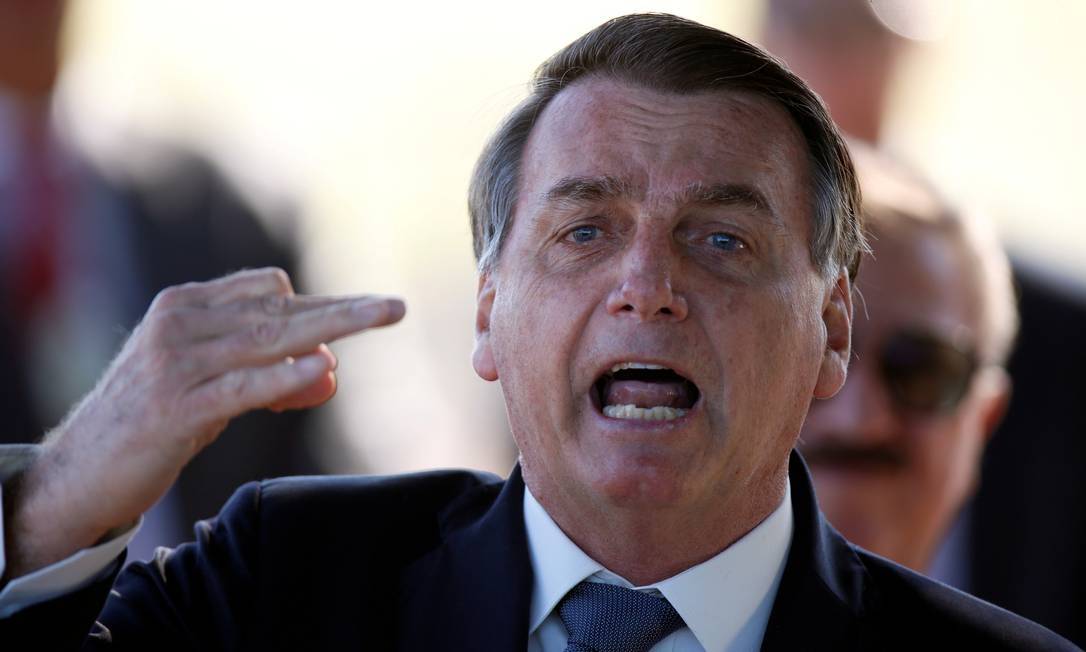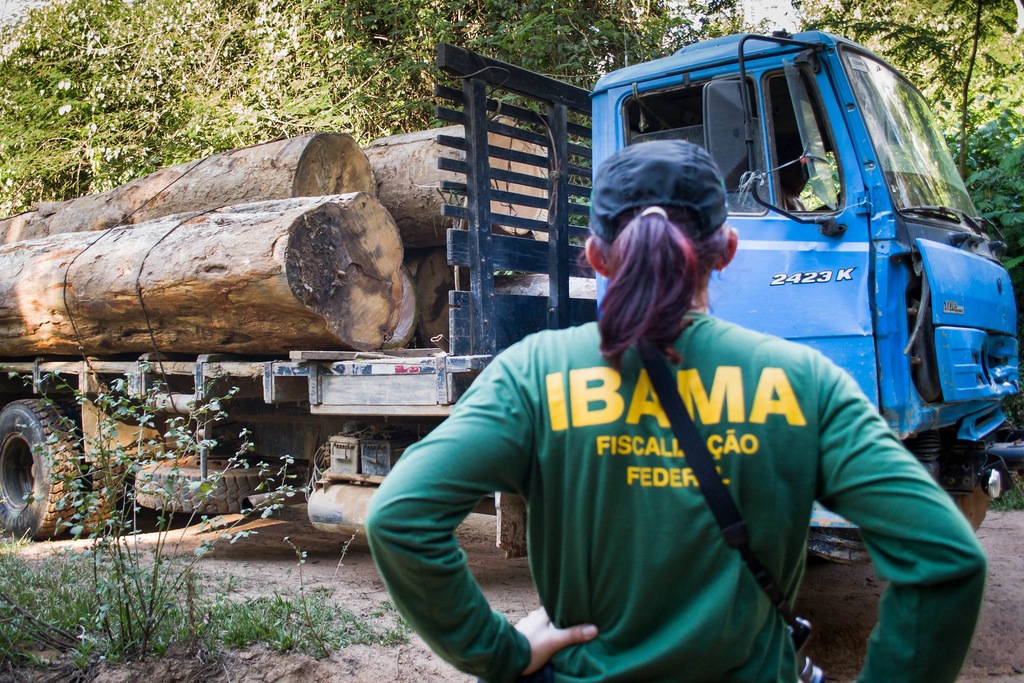RIO DE JANEIRO, BRAZIL – President Jair Bolsonaro’s conservative agenda keeps moving amid the coronavirus pandemic, which has killed thousands in Brazil. Overshadowed by the serious health, political and economic crisis that has enveloped the country, a number of controversies in the areas of environment, education, and public safety have surfaced in the 70 days since Covid-19 reached the country.

The Planalto has managed to set in motion policies that are clear nods to its main electoral bases: evangelical churches, logging and mining companies, and arms dealers. The controversial measures are seen by many as being highly detrimental to indigenous and environmental rights, education, and the reduction of violence.
The environmental area is among those most affedted during the pandemic. Environment Minister Ricardo Salles gave clear indications that he will not tolerate repression against the (currently illegal) gold miners on indigenous lands. On April 13th, he dismissed two IBAMA (Institute of the Environment and Renewable Natural Resources) career officials: Renê Luiz de Oliveira, who was the general coordinator of environmental oversight, and Hugo Ferreira Netto Loss, who coordinated inspection operations.
The two featured in a report by TV Globo’s ‘Fantástico’, which reported on the fight against miners, including the destruction of their equipment, which is required by law, but had been criticized by Bolsonaro.
On February 5th, the President backed a bill that authorizes the extraction of gold from indigenous lands. The measure, which he considers a “golden law” for the indigenous peoples, is viewed as a tragedy by environmentalists and is yet to be passed in Congress.
Salles also nodded at loggers. In late April the Minister recommended to the agencies under his direction that they should disregard the Atlantic Forest Law, legislation that determines the recovery of areas irregularly deforested before 2008.
Subsequently, he sent the President a new version of the law, with the aim, according to him, of “removing technical and legal instability” from the issue. In his proposal, among other changes, logging in areas under 150 hectares is allowed without IBAMA authorization.
The Federal Prosecutor’s Office reacted, and asked IBAMA “to disregard an administrative measure by the Ministry of the Environment and to uphold interdictions, infraction notices, and other sanctions enforceable as a result of illegal occupation and deterioration of the Atlantic Forest in the state of São Paulo”.
Finally, after the political and environmental crisis caused by the fires in the Legal Amazon in late 2019 – and its international repercussion – Bolsonaro authorized, in a Decree published on May 7th, the deployment of the Armed Forces in a Law and Order Guarantee operation, to fight fires and deforestation in the region.
The news could be a comfort to environmentalists, but the decree opens a loophole, in that the IBAMA teams will be subject to the decisions of the Armed Forces, which will have real control of the actions.
As a result, there is doubt over the effectiveness of this measure. According to the National Institute of Space Research (INPE), there was an increase in the number of deforestation alerts in the Amazon in early 2020, compared to the same period last year.

Armaments
President Bolsonaro has never disguised his desire to arm Brazil’s population, allegedly in order to guarantee the “right to self-defense,” even though all recognized studies conducted on the subject point to the fact that having a revolver in the home is a high risk factor for residents – particularly women – above all during this quarantine period.
On April 17th, the President overturned several Army Logistic Command ordinances passed in March to toughen tracking and marking of ammunition and weapons. On social networks, Bolsonaro announced that the measure was taken because the ordinances “did not comply with my guidelines defined in decrees”.
In practice, there is now less control over what armaments are produced and marketed, which may hinder the investigation of crimes. In another move to please his arms-favoring constituents, on April 23rd the President issued an ordinance increasing twelve-fold the amount of ammunition people can buy: from 50 to 600 rounds per year. Depending on the type of weapon, the limit was 6,000 rounds of ammunition.
In late April, the Federal Prosecutor’s Office ordered the Army Logistics Command to provide clarification on the repeal of the ordinances.
“These [repealed] measures, indispensable for the inspection of the use of firearms and for the investigation of illegal acts with the use of firearms, were utilized by experts in public safety and also by the Federal Prosecutor’s Office for Citizens’ Rights,” says the MPF’s request.
Education suffered its most recent setback on April 30th, with the elimination of humanities courses from the 25,000 scholarships awarded by the National Council for Scientific and Technological Development (CNPq), thus excluding thousands of students in philosophy, economics, social sciences, and geography, among others.
According to the body, the new guideline seeks to prioritize areas of knowledge more focused on technology, a long-standing project of the President and his Ministers of Education and Science, Technology, Innovation, and Communications, who have always advocated more “practical” research, with immediate feedback and application.
The repercussions of the measure caused the government to retreat partially, and to allow scholarships for humanities studies, provided they were “for developing areas of technology”. On April 17th, João Luiz Filgueiras de Azevedo, then in charge of CNPq, and who had fought the decimation of the institution and demanded more funds, was fired by Bolsonaro.
In a joint statement, more than 70 institutions linked to teaching and research – among them the Brazilian Society for the Advancement of Science and the Brazilian Academy of Sciences – criticized the government’s decision, claiming that it will lead “these youths to give up certain research topics because they are not directly linked to priority technology areas while in the early stages of their careers”.
Pardon of church tax debts
President Bolsonaro has been increasingly leaning on evangelical support, whether in Congress or at the polls. The most recent nod from the President to the churches occurred in April, when, according to the newspaper ‘O Estado de S. Paulo’, he called on the Treasury to study demands made by evangelical leaders, who want to stop paying federal tax debts.
The secretary of Treasury, José Barroso Tostes Neto, attended a meeting with federal deputy David Soares, son of Missionary R. R. Soares, leader of the ‘Igreja Internacional da Graça de Deus’ (International Church of God’s Grace) to discuss the matter.
According to a report at the end of last year, Soares’ congregation alone owes the federal government R$127 million, and the total federal tax debt of evangelical churches amounts to R$1 billion.
Source: El País

